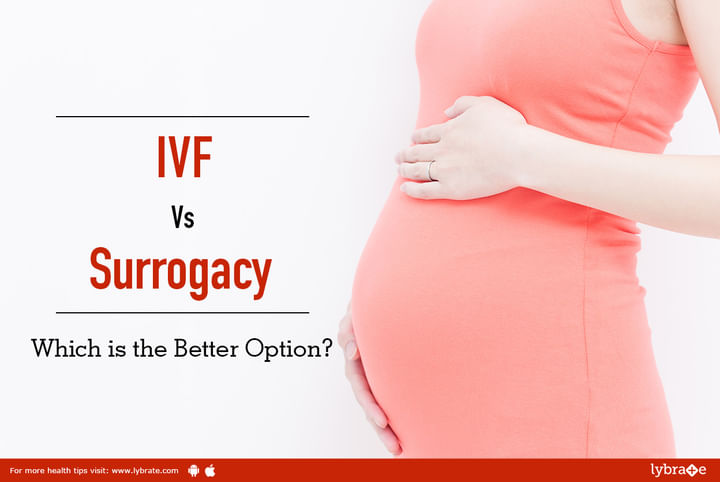IVF Vs. Surrogacy : Which is the Better Option?
Ivf vs. Surrogacy: which is the better option?
Both IVF (in vitro fertilisation) and surrogacy are alternative methods of having a baby and can be resorted to when a couple cannot conceive the natural way. The reason behind the inability to conceive can be due various reasons ranging from infertility and low sperm count (in men) to damaged fallopian tubes and early menopause (in women).
You can opt for either surrogacy or IVF if you've been trying to conceive for more than a year without any results. But which of the two should you opt for? well, there are three things you must keep in mind before making a choice.
How does it work?
Surrogacy is opted for when the woman is unable to conceive by natural means, and when there's no possibility of her getting pregnant whatsoever. Surrogacy can be of two types- full surrogacy and partial surrogacy. Full surrogacy involves the implantation of sperms and eggs of the couple into the uterus of the surrogate mother; while partial surrogacy involves the fertilisation of the surrogate mother's egg by the sperm of the intended father. By opting for surrogacy the woman partner is unable to carry the child, a desire that is present in most women.
On the other hand, ivf works towards the treatment of infertility in one or both the partners, enabling the woman partner to conceive the child. Ivf involves the fertilisation of a woman's eggs by the sperm of the intended father in a laboratory dish. The developed embryo (or fertilised egg) is then implanted in the woman's uterus. This is a viable option for couples who want to have a baby on their own.
Chances of a successful pregnancy are usually higher with surrogacy when compared to IVF.
The risks involved
Risks of surrogacy include multiple births, ectopic pregnancy (implantation of the fertilised egg in the fallopian tube instead of the uterus, leading to miscarriage) and birth defects in the child, to name a few. Apart from that, the genes of the surrogate mother can affect the development of the unborn baby; hence, a surrogate mother has to be chosen with utmost care.
As for risks associated with IVF, ovarian hyperstimulation syndrome (swollen and painful ovaries), multiple births, ectopic pregnancy and stress can take place if ivf is opted for.
The legal process
Surrogacy requires the fulfilment of complex legal processes such as determining eligibility, matching profiles of surrogates with intended parents, finding of a potential surrogate and more, which require proper legal counselling. Besides the cost of surrogacy in India is roughly inr 8, 25, 000.
Ivf does not involve any such processes and is easier to carry out. The cost of IVF in India can range between inr 2, 50, 000 to inr 4, 50, 000, making it a much more viable option.
Based on these factors, you can make the choice of a procedure that is best suited for you.
'consult'.
Related Tip: BUSTED: 4 Myths on IVF Infertility Treatment



+1.svg)
